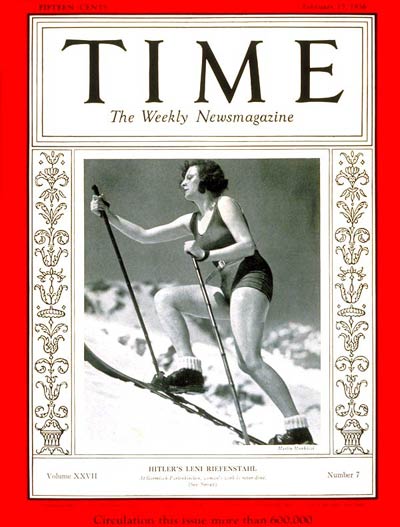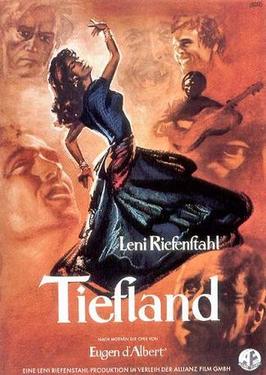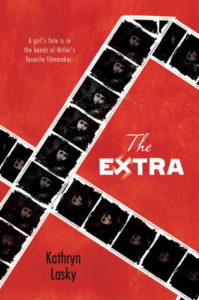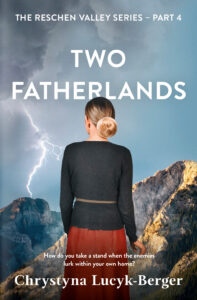
It is not often that I include real historical figures into my novels but in the case of Two Fatherlands: A Reschen Valley Novel Part 4 I have several. I have always sought out “drivers” amongst my cast of characters, whose purpose is to drive the historical events in the story. As I took Katharina’s, Angelo’s and Annamarie’s stories further to the flooding of the valley, I realized there were several key players between 1938 and 1947 that were essential to their stories. For Angelo, it is Giuseppe Mastromattei, the rather visionary prefect of Bozen/Bolzano who was responsible for developing not only the industrial zone but the settlements in the city to fit Fascist designs. Galeazzo Ciano, the foreign minister and Mussolini’s son-in-law actually visited the valley and so he appears as well. But Annamarie’s journey is different. In the third book, Annamarie has fled to Austria just after the Anschluss. Her path takes her to UFA, the Nazi-run film studios in Berlin. My first question was, “Who would she meet and work under?” After much research, and what I call serendipitous discoveries, Leni Riefenstahl was it.
Helene Bertha Amalie “Leni” Riefenstahl was a German film director, dancer, photographer, and actress, known for her seminal role in producing Nazi propaganda. She directed Nazi propaganda films with Hitler’s blessing. Her most epic and innovative work was the propaganda film, The Triumph of the Will (Triumph des Willens). With amazing never-before-done camera angles, she proved to be not only visionary and unafraid of trying new things, but developed a reputation of being a perfectionist. The film, depicting the young athletes of Hitler’s youth groups, has served as a basis of many films up to today. A short film about the Wehrmacht and Olympia, were hugely successful as well. Olympia was shot during the 1936 Olympics in Berlin – secretly funded by the Third Reich – and was her crowning achievement.
The film took Riefenstahl’s career to a new level and gave her further international recognition. She was one of the first filmmakers to use innovative techniques in filmmaking: tracking shots, slow-motion, underwater diving, extremely high and low shooting angles, panoramic aerial, and fast action shots, which set a standard that is still used today in modern sports photography. Riefenstahl filmed competitors of all races, including the gold medal track and field award Jesse Owens in what later became famous footage.
Leni refused to make any further films for the Nazis. Feeling that he was obligated to her, Hitler undertook to fund the film that she wanted to make – a famous opera – Eugen d’Albert’s Tiefland (Lowlands) about a gypsy dancer and a shepherd lover. This film was one of the longest productions in film making, – due to weather, disorganization, and the Spanish civil war followed by WW2 – it was the third most expensive film produced during the Third Reich. It was finally completed in 1954. The extras playing Spanish women and farmers were Romani and Sinti people brought in from detention camps. After the filming they were sent to Auschwitz where they were exterminated. Leni claimed not to know about the exterminations, and she felt the repercussions for the rest of her life (she died in 2003, at the age of 101).

Because of her propaganda films, her relationship with Hitler and other Nazis and her association as a war correspondent in Poland, she was accused of being a Nazi collaborator and was tried in court several times. In a trial in July 1949, the evidence was overwhelming that she was never associated or involved with the Nazis and won unanimous victories in her denazification trials.
Her personal life was immensely varied. As a young girl, Leni wrote poetry and painting and wanted to be a dancer. Her mother, behind her father’s back, took Leni to ballet as her passion grew for dancing. She went to a prestigious dancing school and danced for about a year but had to quit because of injuries. While recovering from knee surgery, she saw a poster for a film, in the “mountain genre” and decided to become an actor. Managing to meet the director, she submitted her portfolio, and he was so impressed with her that he produced a script written specifically for her. During the filming of various roles, she learned the technical aspects of the industry – directing, editing, camera work, etc. She imagined a film where she could direct and act with a fairy-tale theme. In 1932, she saw the grand premiere of her film, Das Blaue Licht (The Blue Light) which was instantly successful.

While her professional life was blossoming with newfound paths, her personal life during this period took a drastic turn for the worst as she found out that her fiancé was having an affair. Then, as pre-production for her first film took place, she found herself the attention of both the lead actor and the director. As an actress she was romantically involved with actors and other cast members. During the filming of Tiefland she met her first husband, Peter Jacob and they were married in 1944. Their marriage lasted 3 years and they separated because of the stress of her illnesses, arrests, harassment by the French, who oversaw the zone they lived in, and their confiscation of her films and work. These were finally returned to her in 1952. After Tiefland was produced she never made another film because investors found her history of Nazi association too great of a risk.
The rest of her life was just as varied as her early life. She travelled to Africa, shot films, published photographic books, memoirs, became a certified diver and filmed and photographed the wildlife in the sea. But throughout her life, her past – her beginnings, and the choices she made – haunted her.
In Two Fatherlands, Annamarie works with Leni Riefenstahl, first as an intern and then travels with her to Poland, where Leni was said to pull a pistol on the Wehrmacht soldiers who were killing and rounding up Jews. She was nearly shot herself and the event shook her to her core. Claims are that that was the first time she fell out of love with the Nazi party. Annamarie’s journey continues when she is called up to work on the Lowlands production, where she too falls out of love not only with Riefenstahl after the Sinti and Roma experience, but with the entire industry and party. The choice I made for this character arc and using Leni Riefenstahl as that “driver” also provided me with a wonderful tool for shadowing Riefenstahl’s real-life journey as well.

AN EXTRACT FROM
Two Fatherlands
Annamarie padded down the stairs and entered the hotel dining room. There was a light on in the guesthouse Stube and she recognised the soft clink of glasses. The clock on the wall read 2:00 a.m.
Except for a bartender drying and putting away wineglasses, Riefenstahl was the only person in the room. At a round table, Riefenstahl sat with half a glass of wine and an empty schnapps thimble as well as what seemed like dozens of sheets of paper spread around her. She looked up as Annamarie approached.
“Mind if I join you?”
“Couldn’t sleep?”
Annamarie nodded.
“Excited?”
She shrugged. “A lot on my mind.”
Riefenstahl tore her gaze away, hands on the piles of paper. “Sometimes I feel like this movie simply does not want to be made.”
“What’s the problem?”
“Actresses. That’s what. My lead actress is now no longer available.” She raised her palms. “Extenuating circumstances. War, right?”
“Is there anything I can do to help?”
Riefenstahl rose and went to the bar, reached over it, and returned with a bottle of schnapps and a glass. “Have one.”
Annamarie did not say no. She raised her glass when Riefenstahl had filled it, and they drank, Riefenstahl knocking her shot back.
“What have you been up to?” she asked before Annamarie had finished hers.
Annamarie put her glass on the table. “Where to begin?”
“How about at the beginning?”
“I just left my family again. I’m not so certain it was the right thing to do.”
“You’re an adult now. It’s time to forge your own way.”
Annamarie nodded. “It’s just that my family is facing extreme hardships.”
“Where are they?”
“The Reschen Valley.”
Riefenstahl folded her arms. “That’s right. I forgot. You’ll be coming to the Rosengarten location with us.”
“I will?”
“Yes. And before you do, stop over there. We’re here for six weeks, then down there. Take a couple of weeks. See how they are. Then join us.”
“I might do that.”
“Good. Because when we move into the studio in January, I have a part I want you to play.”
Annamarie’s eyes widened. “A part?”
“Yes. It’s a small one. I was going to play it myself. God knows with this war on, it’s getting more and more difficult to find good people. So I can’t play that minor role, because I’ve just decided this evening that I’m going to play the lead role.”
“The dancer? Marta?”
“Yes. If I don’t do it, who will? Oh, look at your face! You’d jump at it, wouldn’t you? You’re too young, Annamarie. I have the experience.” She paused. “I used to be a dancer, you know?”
For the first time, Annamarie looked at Leni Riefenstahl more closely.
“You think I’m too old.” She poured another shot of schnapps for each of them.
“No.”
“You are bold, but you’re not a good liar. I certainly hope you’re a better actress.”
After emptying her thimble, Annamarie muttered, “People have been telling me the opposite my whole life.”
Riefenstahl set her schnapps down, scrutinized her, and then laughed.
Annamarie did too.
Coming April 2021 – Pre-order Now!

Book 4
How do you take a stand when the enemies lurk within your own home?
1938. South Tyrol. Katharina, Angelo, and Annamarie are confronted by the oppressive force created by Mussolini’s and Hitler’s political union. Angelo puts aside his prejudices and seeks an alliance with old enemies; Katharina fights to keep her family together as the valley is forced to choose between Italian and German nationhood, and Annamarie finds herself in the thick of a fascist regime she thought she understood. All will be forced to choose sides and none will escape betrayal.
Sources:
Wikipedia
https://courses.washington.edu/ger371/riefenstahl/biography.html
Source featured image:
By Unknown author; cropped and stripped by Beyond My Ken (talk) 16:44, 10 July 2018 (UTC) – Olympia-Film G.m.b.H., Berlin S.O. 36, Harzerstraße 39 (founded 9 Dec 1935, end of business per 31 Dec 1939, liquidated 9 Jan 1942), Public Domain, https://commons.wikimedia.org/w/index.php?curid=70723262


